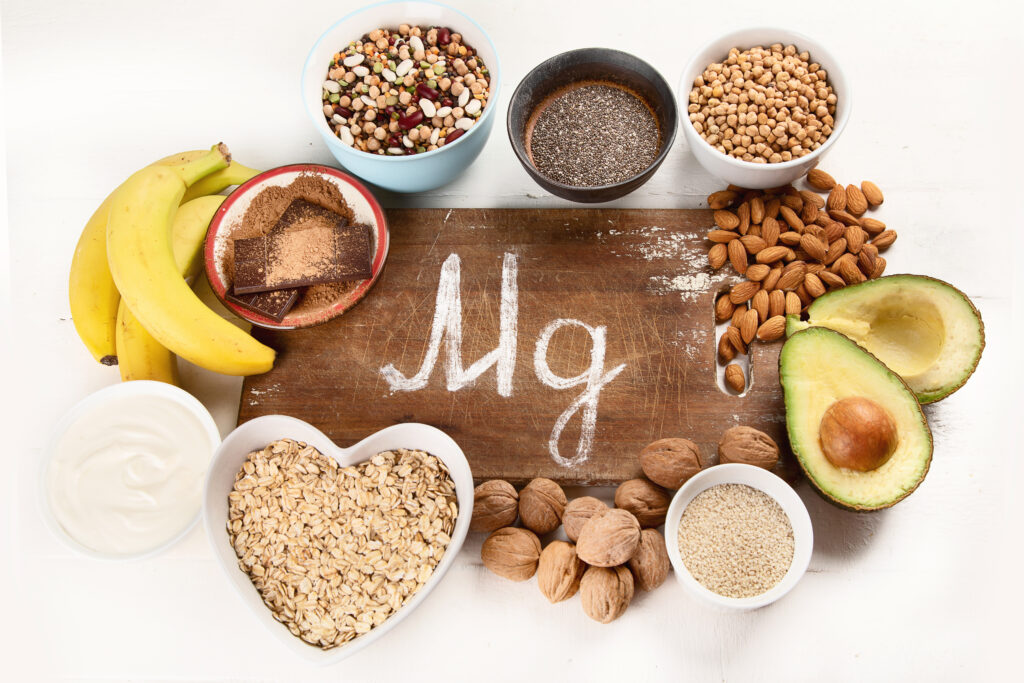Dementia is a growing concern worldwide, as it affects millions of people each year. The progressive cognitive decline associated with this condition can have a significant impact on the quality of life of both the individuals affected and their caregivers. While researchers continue to search for a cure or definitive treatment, prevention remains a critical goal. A recent study published in the European Journal of Nutrition (https://link.springer.com/article/10.1007/s00394-023-03123-x) suggests that magnesium, a vital mineral, may play a significant role in keeping dementia risk low.

Magnesium: The Essential Mineral
Magnesium is an essential mineral that plays a crucial role in various bodily functions. It is involved in more than 300 biochemical reactions, such as maintaining normal muscle and nerve function, supporting a healthy immune system, regulating blood sugar levels, and contributing to the production of energy and protein synthesis.
The human body does not produce magnesium on its own, so it must be obtained through diet or supplementation. Common dietary sources of magnesium include leafy green vegetables, nuts, seeds, and whole grains.
The Link Between Magnesium and Dementia
The study published in the European Journal of Nutrition explores the potential association between magnesium intake and the risk of developing dementia. The researchers conducted a systematic review and meta-analysis, combing through multiple high-quality studies to assess the relationship between magnesium levels and cognitive decline.
Their findings reveal that higher magnesium intake is associated with a significantly lower risk of developing dementia. The study also highlights the importance of maintaining adequate magnesium levels throughout life, as a deficiency can lead to an increased risk of cognitive decline and neurodegenerative diseases such as Alzheimer’s and Parkinson’s disease.
How Magnesium Protects the Brain
The exact mechanisms behind magnesium’s protective effects on the brain remain under investigation, but several hypotheses have been proposed. Some of the potential ways magnesium may protect the brain and reduce the risk of dementia include:
- Neuroprotection: Magnesium is thought to have neuroprotective properties, safeguarding the brain from damage caused by various factors, including oxidative stress, inflammation, and excitotoxicity. These factors are known to contribute to the development of neurodegenerative diseases like dementia.
- Enhancing Cognitive Function: Magnesium plays a crucial role in the transmission of nerve impulses and the regulation of neurotransmitters, which are essential for proper cognitive function. Adequate magnesium levels may help maintain optimal brain function and prevent cognitive decline.
- Improving Blood Flow: Magnesium helps in the regulation of blood pressure and the dilation of blood vessels, which in turn can lead to improved blood flow to the brain. Better blood circulation in the brain may contribute to a lower risk of dementia by ensuring the delivery of essential nutrients and oxygen to brain cells.
- Reducing Inflammation: Chronic inflammation is a known contributor to the development of dementia and other neurodegenerative diseases. Magnesium has been found to possess anti-inflammatory properties, which may help reduce inflammation in the brain and protect against cognitive decline.
Incorporating Magnesium into Your Daily Life
Considering the potential benefits of magnesium for brain health and dementia prevention, it is essential to ensure that you are getting adequate magnesium in your daily diet. Here are some ways to incorporate magnesium-rich foods into your life:
- Eat magnesium-rich foods: Include leafy green vegetables (e.g., spinach, kale, and Swiss chard), nuts (e.g., almonds, cashews, and peanuts), seeds (e.g., pumpkin, sunflower, and flax seeds), and whole grains (e.g., brown rice, quinoa, and whole wheat bread) in your daily meals.
- Consider supplementation: If you find it difficult to obtain enough magnesium through your diet, consider taking a magnesium supplement after consulting with your healthcare provider.
- Maintain a balanced diet: A well-rounded diet that includes a variety of nutrient-dense foods will help ensure that you are meeting your magnesium needs and supporting your overall health.
Magnesium Link to Dementia Risk – Conclusion
The link between magnesium and dementia risk underscores the importance of maintaining adequate magnesium levels throughout life. By incorporating magnesium-rich foods into your daily diet or considering supplementation, you may be taking a significant step toward protecting your brain health and reducing the risk of dementia. As always, it is essential to consult with your healthcare provider before making any significant changes to your diet or supplement regimen.